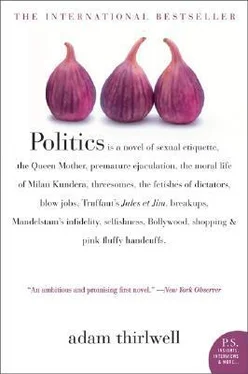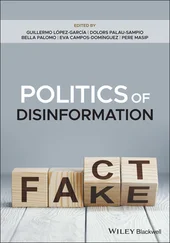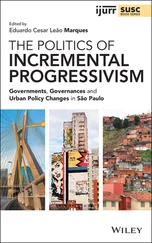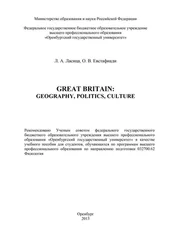Adam Thirlwell - Politics
Здесь есть возможность читать онлайн «Adam Thirlwell - Politics» весь текст электронной книги совершенно бесплатно (целиком полную версию без сокращений). В некоторых случаях можно слушать аудио, скачать через торрент в формате fb2 и присутствует краткое содержание. Год выпуска: 2004, Издательство: Harper Perennial, Жанр: Современная проза, на английском языке. Описание произведения, (предисловие) а так же отзывы посетителей доступны на портале библиотеки ЛибКат.
- Название:Politics
- Автор:
- Издательство:Harper Perennial
- Жанр:
- Год:2004
- ISBN:нет данных
- Рейтинг книги:3 / 5. Голосов: 1
-
Избранное:Добавить в избранное
- Отзывы:
-
Ваша оценка:
- 60
- 1
- 2
- 3
- 4
- 5
Politics: краткое содержание, описание и аннотация
Предлагаем к чтению аннотацию, описание, краткое содержание или предисловие (зависит от того, что написал сам автор книги «Politics»). Если вы не нашли необходимую информацию о книге — напишите в комментариях, мы постараемся отыскать её.
Moshe loves Nana. But love can be difficult — especially if you want to be kind. And Moshe and Nana want to be kind to someone else.
They want to be kind to their best friend, Anjali.
Politics
Politics — читать онлайн бесплатно полную книгу (весь текст) целиком
Ниже представлен текст книги, разбитый по страницам. Система сохранения места последней прочитанной страницы, позволяет с удобством читать онлайн бесплатно книгу «Politics», без необходимости каждый раз заново искать на чём Вы остановились. Поставьте закладку, и сможете в любой момент перейти на страницу, на которой закончили чтение.
Интервал:
Закладка:
3
In Venice, the two of them stumbled off a rocking water taxi at Arsenale, and walked along the quay to the Hotel Bucintoro. Nana had chosen the hotel from the Time Out website. It was small and had an ochre front wall and views of the lagoon. It was also where the painter James McNeill Whistler stayed at the end of the nineteenth century. This appealed to scholarly Nana.
They checked in, then walked up the red and green floral carpet to their room. Nana sat on one of the beds and tugged her sandals off, while Papa stood, a silhouette, at the window. He leaned against the window, happily. And Nana walked across to join him. There was a large standing fan by the window. Nana switched it off. She stood next to Papa, and leaned her head on the frame beside him, so they were symmetrical. Nana’s bare feet were cold on the cheap terrazzo floor, a glazed terrine of grey and black splinters. She noted the brush lines in the frame’s paintwork, the embedded bristles in the gloss. They watched the water lighten, and darken, repeatedly.
It was beautiful.
Venice is beautiful, it really is. Some people think it is too beautiful, whatever that means, and some people think it is not beautiful at all, they think people say Venice is beautiful only because it is old, and all these people are just completely wrong.
Venice is beautiful.
‘It’s byootiful,’ said Nana, ‘really byootiful.’ Papa said, ‘And what’s that?’ She said, ‘That, that’s the Dogana. That’s the customs house.’ ‘Uhhuh,’ said Papa. ‘And is that beautiful?’ ‘No,’ said Nana. ‘That’s not beautiful. Well it’s okay. It’s oh kay. It’s not unbeautiful.’ ‘And what about that, what’s that?’ said Papa. ‘That’s the church, that’s Salute,’ said Nana. ‘It’s beautiful,’ said Papa. ‘No it’s not,’ said Nana. ‘It is definitely not beautiful.’ ‘Why not?’ said Papa. ‘It just isn’t,’ said Nana. ‘But why not?’ said Papa. ‘You are going to take me to Florian’s,’ said Nana, ‘and then I will tell you what is beautiful.’ Then she kissed him. ‘I want a hot chocolate,’ she said.
As they walked down the stairs to the foyer, they could hear the unmistakable sounds of a woman on holiday faking or reaching an orgasm.
Both of them ignored these sounds.
4
In case you are worried, that is the only moment where sex will intrude on this chapter. There is no sex in this chapter. In this chapter, Nana is at her happiest.
Sometimes I think that this book is an attack on sex. Sometimes I think that it is prudish. It might be. And if it is, then some people, maybe even a lot of people, will think that this is wrong. They will think that being prudish is indefensible.
But me, I do not think that prudishness is indefensible. I really don’t.
Caffe Florian is a coffee shop on St Mark’s Square in Venice. It is a very old coffee shop. This means that now it is very very expensive. If Moshe had been there, it would have upset him. It was maybe four pounds for a coffee. It was maybe five pounds for a hot chocolate.
But Nana and Papa were not going to worry about the price. They were on holiday. They loved the kitsch charm of Florian. Delighted, they sat at their miniature heptag- onal table. Perhaps ‘miniature’ does not quite convey how small this table was. It was an eighteenth-century table. It was premised on the notion that a giant human was five foot five. And it looked like something, thought uncomfortably folded six-foot Nana. It was like something but no, she, no, she could not remember.
Nana looked out the window at the multicoloured domes of St Mark’s Cathedral. St Mark’s Cathedral is the most famous building in Venice. And this made Nana happy. She was happy she could see St Mark’s Cathedral, while she sipped an eighteenth-century hot chocolate. She loved being a tourist. And here, I completely agree with Nana. I love being a tourist too.
She said, ‘I so love that cathedral.’ She said, ‘I just love the way it’s so colourful.’ She said, ‘I love the shapes.’ She poured out some thick chocolate from a porcelain jug, and the faint lines dribbled from beneath its lip, each ending in a dense clot. It was darker than chocolate, almost black. ‘It’s just so cool,’ she said.
It’s like a backgammon board! she thought, relieved. Yes, the table was like her old backgammon board.
Nana was happy. Nana was nostalgic.
She was looking at Papa and remembering how, when she was young, she would get up and sleepily walk downstairs. She could hear Papa chatting on the phone. The French windows would be open. She’d get up in the morning and the living room would be cold and Nana would be able to hear the motorway noise, the start of the Mi in the blurry distance.
She loved being a tourist. Tourism was restful. Tourism was just like home.
6
For example, this was one of their conversations in Venice.
‘What’s that?’ said Papa. ‘What?’ said Nana. ‘That,’ said Papa. ‘That is eighteenth century,’ said Nana. ‘Really,’ said Papa. ‘Yup,’ said Nana. ‘That is the architecture of the eighteenth century.’ ‘How do you know?’ said Papa, suspiciously. ‘Because I, because of the, because of the bricks,’ said Nana. ‘But you can’t see the bricks,’ pointed out Papa. ‘Yes I can,’ said Nana. ‘No you can’t,’ said Papa. ‘Yes I can,’ said Nana. ‘And they’re eighteenth sentry.’
‘And what about that?’ said Papa. ‘That is, that is the Dogeez Palis,’ said Nana. ‘And that is the Bridge of Sighs.’ ‘It is not the Bridge of Sighs,’ said Papa. ‘I have seen the Bridge of Sighs on a postcard and that is not the Bridge of Sighs.’ ‘No,’ said Nana. ‘No. You’re right. It’s the Ponte dei Pugni.’ ‘The what?’ said Papa. ‘The Ponte dei Pugni,’ said Nana. ‘Never heard of it,’ said Papa. ‘I read about it in the Rough Guide,’ said Nana. ‘Architecture, it’s architectral histry you’re doing, isn’t it?’ said Papa. ‘That’s right,’ said Nana. ‘You know that.’ ‘Only teasing,’ grinned Papa.
He wasn’t teasing. He couldn’t remember. But I am teasing you too — just you wait. You’ll see why I’m teasing you later.
On a gondola, in the dark, drinking demi-sec Cava from the bottle, Papa and Nana were happy together.
7
Three days later, in the middle of their study of the Venetian Renaissance, Nana and Papa set off for Targu Jiu. Targu Jiu is a small industrial town in western Romania. It was Nana’s special sightseeing treat.
Nana was no conventional tourist.
In Venice railway station, a man in a ticket booth told them the train times from Venice to Budapest. He did this by reading the times off a grid, using a ruler illustrated with the sights of Turkey. Then from Budapest they got a train to Craiova, in Romania, and from Craiova to Targu Jiu.
But why was this unpronounceable Romanian town Nana’s special sightseeing treat? Because there are three Brancusi monuments in Targu Jiu. But who is Brancusi?
Brancusi was a sculptor at the start of the twentieth century. He was Romanian, but he lived in Paris. In Romanian, Brancusi’s name is pronounced ‘Brunkoosh’. But I don’t think that matters. Calling him ‘Brunkoosh’ is quite pretentious. In this book, you can stick to ‘Brankoozy’.
This is getting quite cultural, I know. But cultural tourism is inescapably cultural. I can’t help that. If Nana and Papa had chosen to go to Benidorm, then obviously I would not have had to bring Brancusi into this. But they are not in Benidorm. They have just arrived in Targu Jiu, a small industrial town in western Romania.
Anyway, it is not that cultural. Brancusi was a sculptor in the twentieth century. He was Nana’s favourite sculptor. He was the subject of her proposed Ph.D. That is all you need to know.
Читать дальшеИнтервал:
Закладка:
Похожие книги на «Politics»
Представляем Вашему вниманию похожие книги на «Politics» списком для выбора. Мы отобрали схожую по названию и смыслу литературу в надежде предоставить читателям больше вариантов отыскать новые, интересные, ещё непрочитанные произведения.
Обсуждение, отзывы о книге «Politics» и просто собственные мнения читателей. Оставьте ваши комментарии, напишите, что Вы думаете о произведении, его смысле или главных героях. Укажите что конкретно понравилось, а что нет, и почему Вы так считаете.












